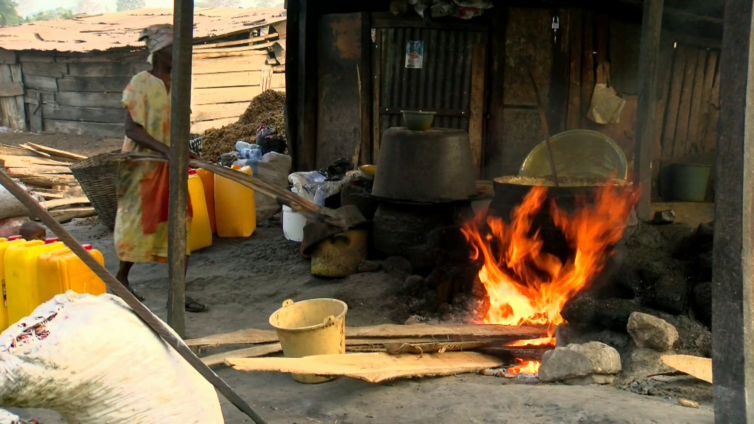OFORIKROM, Ashanti Region - Women working in small-scale palm oil production face severe health risks from hazardous conditions involving high heat and constant exposure to toxic smoke, according to experts.
Thousands of women and being sickened and risking death from illnesses resulting from their work. Workers and health experts are now calling on the industry to clean up its act with cleaner cooking technologies and better healthcare access.
On a sunny afternoon here in Oforikrom, a community in the Ashanti Region of Ghana, 42-year-old Vivian Fori stands beside an open firewood stand stirring a big pot of deep red palm oil. A thick smoke fills the air.
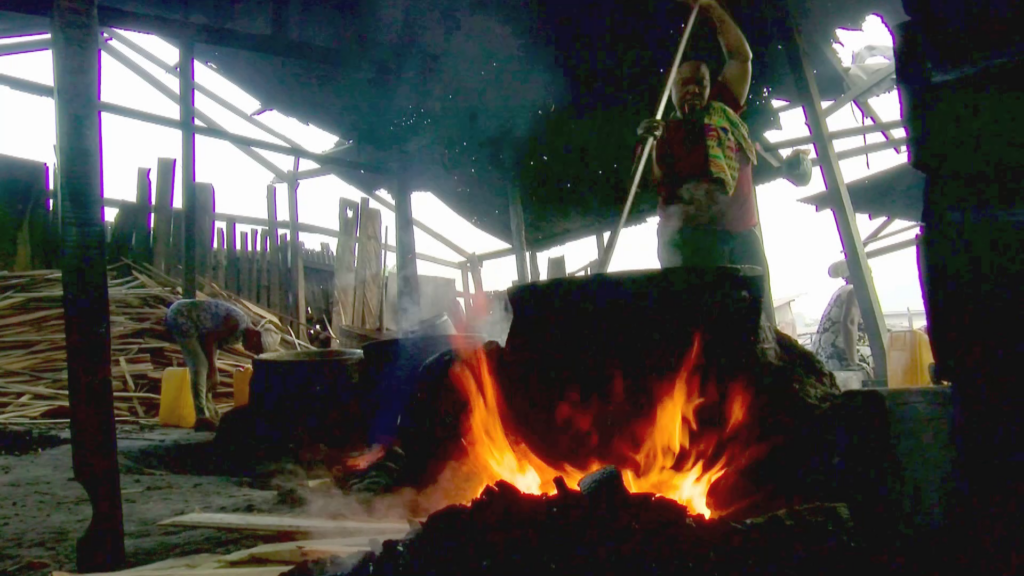
Using her hand to wipe her teary eyes and sweating face, Vivian says she uses firewood to cook the whole day. She processes palm oil on a small scale, a job taught to her by her mother-in-law three years ago. It’s been a reliable source of income for her family.
"This work is full of stress but it is worth it,” Vivian says. “It is a job for females. You can make a lot of profit from processing palm oil, but it is not so much. At least you can get a wage that can take you through the day.”
Using high heat to heat, grind and pound the palm kernel to get the oil is physically draining but she has little choice.
"The work is exhausting. But I use two days to rest to regain my strength,” Vivian says. “Every job is stressful. How will you get money, if you are not willing to suffer for it?”
Health Impacts on Women:
Vivian uses the traditional cookstove known in local parlance as "bukyia". It’s made from clay and built in 3 stands to support large saucepans during cooking. To fuel the stove, Vivian uses bundles of firewood.
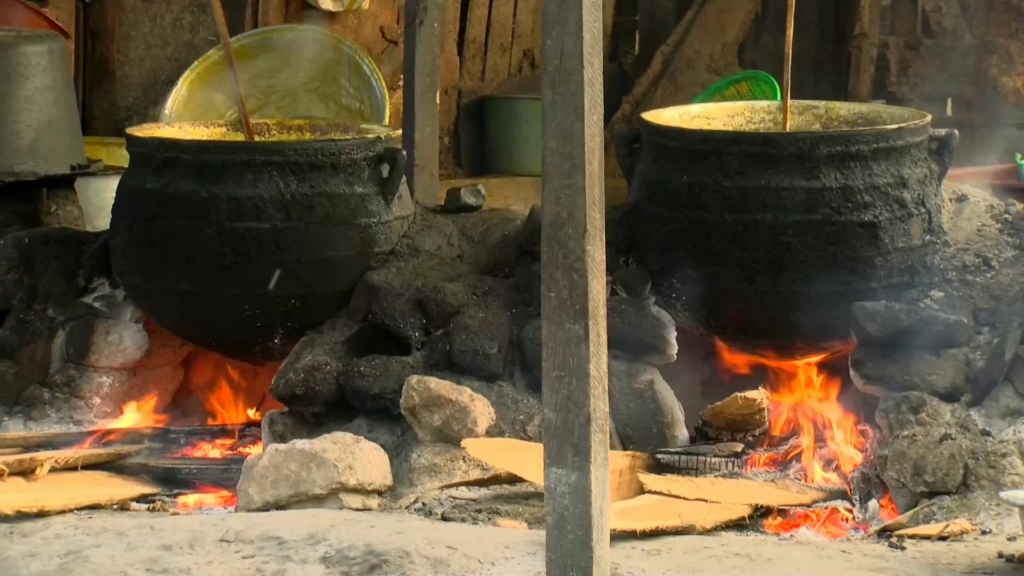
“When cooking, the place becomes full of smoke,” she says. “The smoke gets into my eyes. At night, I find it hard to sleep. My eyes are red and it aches. It is as if something is pinching my eyes. But that will not make me stop this work.”
At Bomso community, in Ashanti, another small-scale palm oil producer named Charity Kpogo, finds she is unable to open her eyes for days.
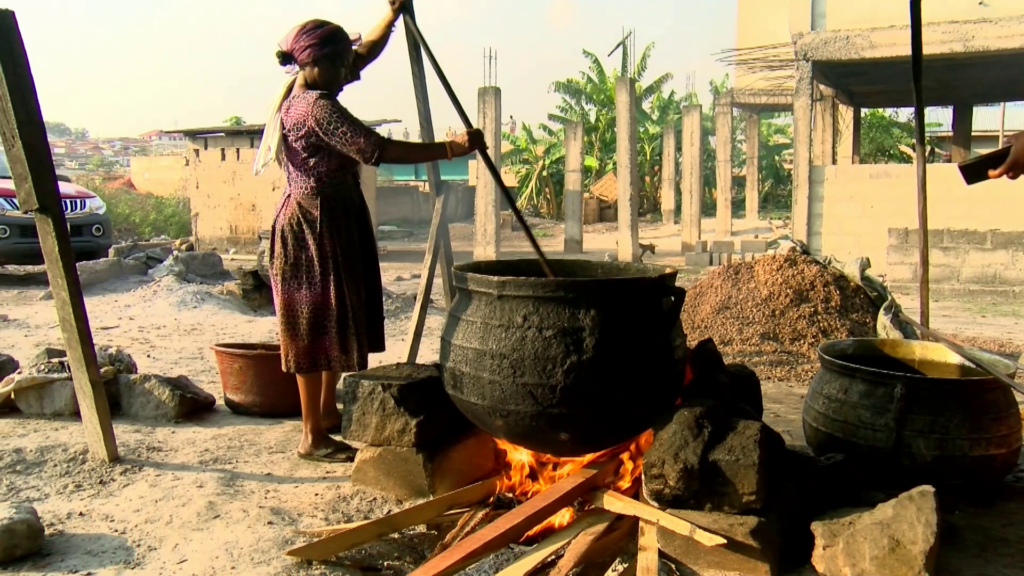
"At times, it is difficult to keep my eyes open,” Charity says. “When I open my eyes, the smoke and sweat gets into it. So I rush to get cold water to wash my face before I continue working. I worry about this so much.”
Vivian and Charity are some of the thousands of women whose health is threatened by the harmful effects of cooking with firewood. According to the World Health Organization nearly four million people each year die from household smoke produced by dirty stoves and fuels.
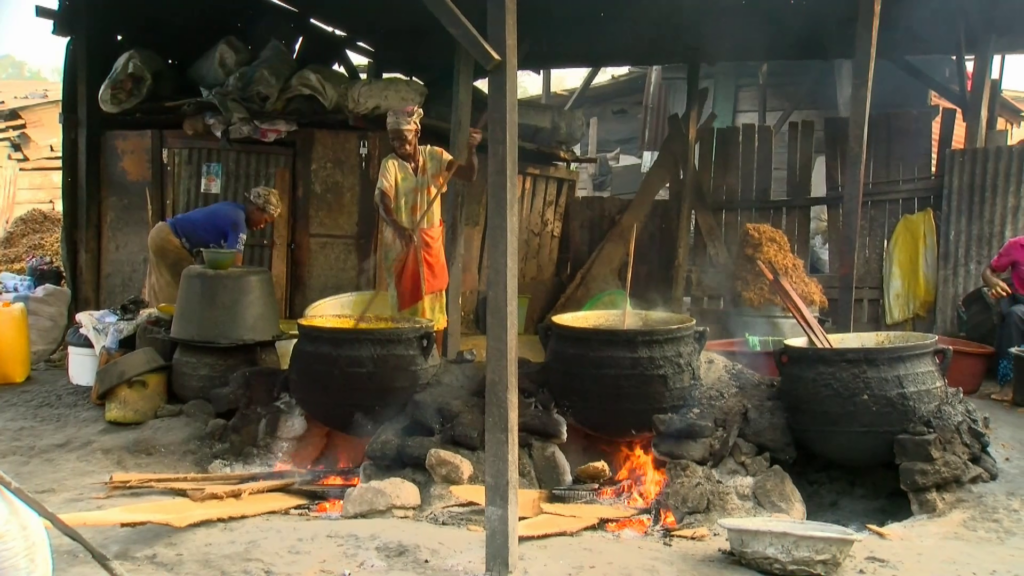
According to Dr Florence Boa-Amponsem, Medical Coordinator for Doctors in Business Organization the smoke will cause a range of illnesses.
“So the women who are constantly sitting by it, it causes those problems they highlighted,” says Dr Boa Amponsem. “Sometimes it even goes as far as triggering asthma. We also have skin blemishes, breathing problems and blurred vision. It goes hand in hand with other kinds of exposures.”
Women are likely to suffer from particular problems from long-term exposure to smoke.
“When it comes to women, sometimes, it causes a hormonal balance, there is also low immunity,” she says. “The more you sit by these gasses exposed from the firewood. It causes a lot of dehydration. As you are exposed, your immunity gets suppressed.”
Dirty cooking practices are also contributing to climate change. Burning solid fuels produces carbon dioxide – the key gas leading to global warming.
Access to medical facilities
Despite her painful symptoms, the cost and lost income from work mean Vivian Fori rarely seeks medical care. She only visits the hospital when she is unable to stand.
"You know in Ghana, we all do not like going for check-ups,” Vivian says. “As long as I am able to stand on my two feet, I am okay. If I am down, that is when I seek medical care. After I inherited this job from my mother-in-law, I got sick and was admitted to the hospital for about three days. Since that incident, I have felt weak generally sometimes.”
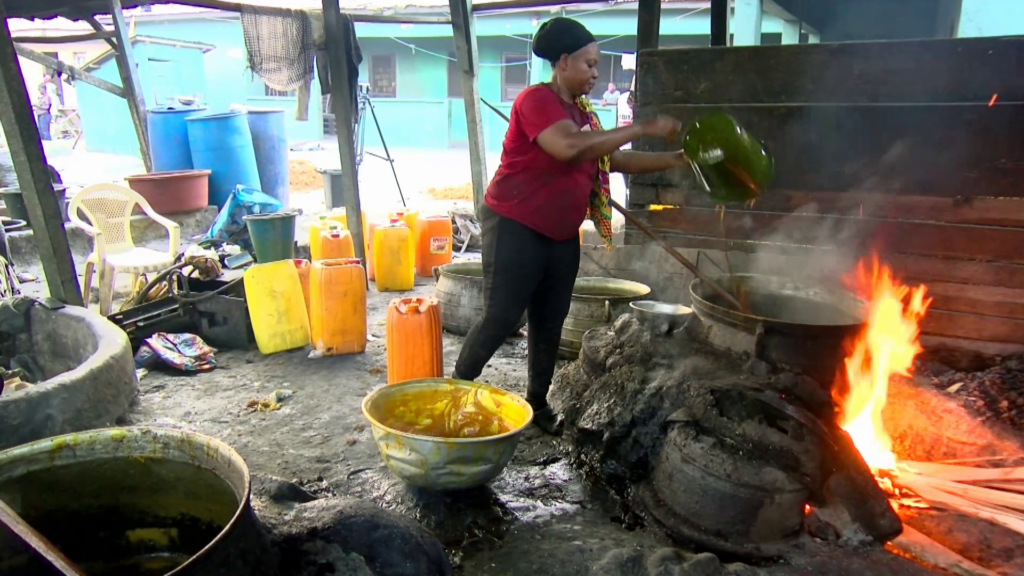
Charity Kpogo has never visited the hospital but relies on a widely used but unproven blood tonic whenever she feels dizzy.
"We get so sick often coming into contact with this high heat and smoke,” Charity says. “If you do not drink blood tonic for a week or in a month, you will be seriously ill. I take blood tonics all the time. Whenever I feel dizzy, I run to the pharmacy shop to buy it. It helps me get the strength to continue working. You don't even have to go to the hospital.”
But Dr Obed Amponsah, a Kwame Nkrumah University pharmacist, says he has seen no evidence of blood tonics treating respiratory diseases or other smoke-related infections.
"Once you are having these nutrients taken in exogenously or externally from these preparations, it could help your body generate energy. So, the women may feel energized for the next day's activities,” Dr Amponsah says. “There is also the placebo effect of taking medicine, where your mind - which is a powerful organ - makes you believe so long as you take the medicine you will get better.
Dr Amponsah reveals a study conducted in January 2024 at Chorkor Township in the Greater Accra Region showed women who were exposed to smoke were generally found to be anemic – meaning lacking in iron.
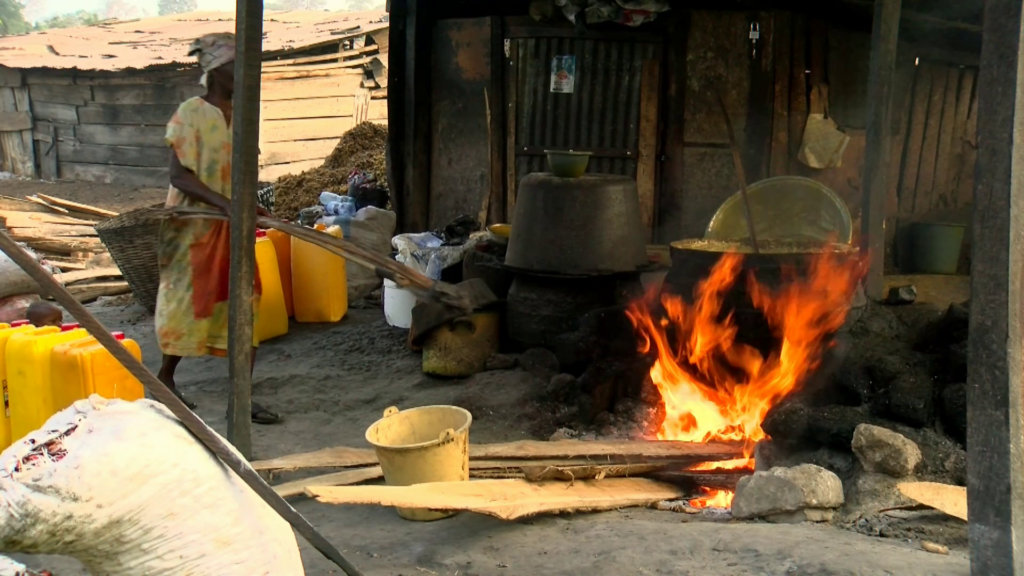
"Now if you are anemic and you are taking some of these tonics, definitely you are going to feel better. This is because you are replenishing your blood. It could also be dependent on the dose that you take,” he says.
Impact on surrounding communities
Gloria Keglo is a student nurse who lives around the neighborhood of Bomso, where Charity Kpogo's palm oil production site is located. Gloria assists the crew as an errand girl.
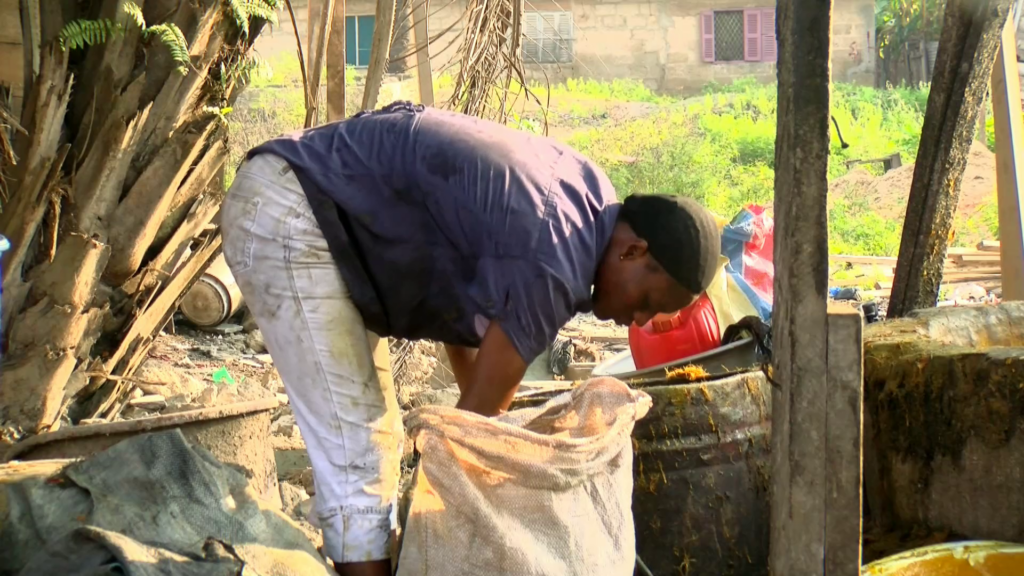
She has lived in the neighborhood for more than two decades and currently suffers from a persistent cough which she is currently treating at the KNUST hospital.
"The fire and the kind of wood used here brings out more smoke,” Gloria says. “Sometimes the place will be so smoky. The smoke takes over the whole place, such that we find it difficult to breathe. So you just have to move out of the place, when the smoke goes down then you come back.”
Balancing economic necessity with health risks.
Ghana’s economic troubles have caused prices of everything to rise. For women here the firewood that fuels their business has risen as much as five times in price. A tricycle filled with firewood that used to cost 25 to 20 cedis is now 150 cedis.
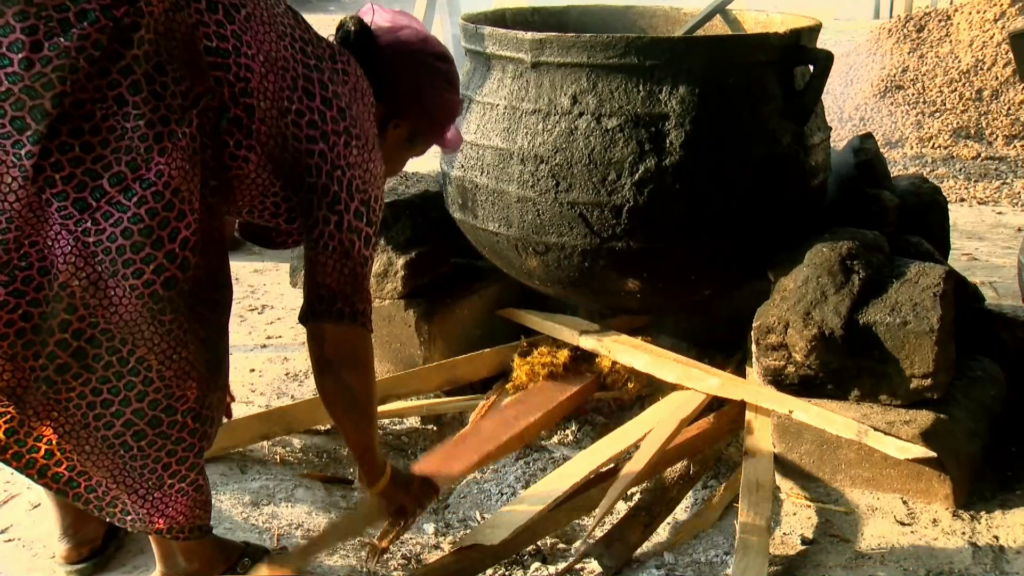
That has opened a window here where women are willing to consider different, cleaner energy sources.
“Even we could get another source of fuel without coming into contact with this high heat and smoke. I will like it very much,” says Charity.
Gloria is one of the few educated people in her neighborhood so the women here have asked her to help them in finding an organization to train them on safe production methods using cleaner energy.
"They say I am going forward in life and meeting people in high places, so they tell me to bring people to come and change or educate them on some safe ways of cooking without getting sick,” Gloria says. “They tell me they have been doing this unclean cooking for a long time, and they are looking for ways to make things easier.”
Introduction of cleaner cooking technologies and their effectiveness.
There is a lot of progress being made on solutions for dirty cooking. Here at the Kwame Nkrumah University of Science and Technology researchers have been coming up with cleaning options for cooking in a range of impacted industries and in Ghanaian households.
Dr Micheal Commeh is in charge of sustainable industrial materials in climate change mitigation interventions across Ghana. He has built an improved cook stove that has been placed in a number for senior high schools and businesses producing food on a large scale.
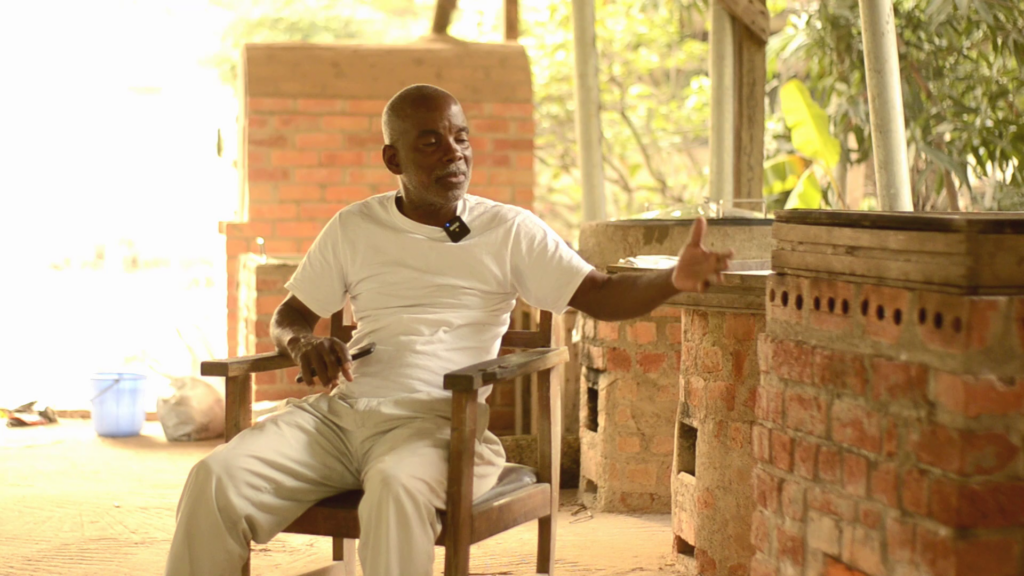
"The fundamental design is such that the tip of the flame is the one that will meet the cooking pot containing what you are cooking or smoking,” Dr Commeh says. “Because the tip of the flame is the cleanest and has less smoke or emissions. It is designed so that the tip gives you more heat and less smoke.”
The improved cook stove can be used for boiling, baking and frying.

"There are high temperatures there, that is 850 to 1,200 degrees Celsius,” he says. “It cooks your food very well and faster. It reduces the energy source that is the use of charcoal and firewood between 60 to 80%. A little bit of firewood will cook your food fast and well.”
The cook stove uses less firewood, costing about 10 cedis, compared to more than 100 cedis for the traditional stove. The upfront cost is high but Dr Commeh says it will be repaid fast. The improved cook stove does not require much maintenance, the combustion chamber only has to be changed every two to three years.
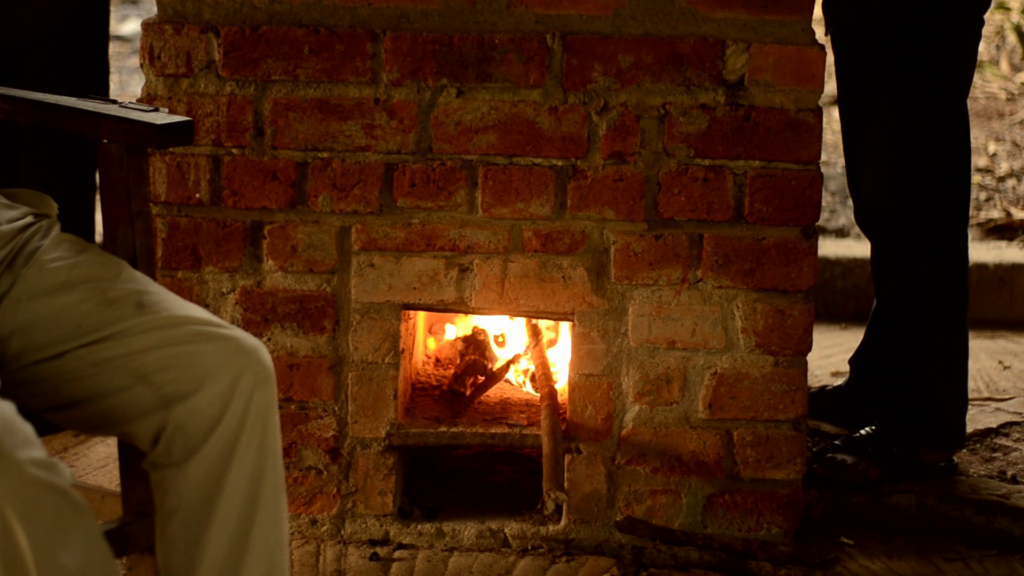
"These huge stoves will take you four to six months to pay back,” he says. “Which means you are saving a lot of fuel and money. With the LPG, you are spending over 250 cedis cooking throughout the night, whereas you spend only 10 cedis with the newly improved cook stove. With the old cook stoves, you spend about 60 cedis. You save money in terms of going for firewood and paying hospital bills. The cost of the improved cook stove is between 3000 and 5000 dollars.”
Safety Measures
Experts say that broad government support for cleaning the air, and Ghana’s large number of clean energy entrepreneurs, mean the country is well placed to move fast to replace dirty cooking practices over the next few years.
Women like Vivian Fori are pleading for it to come fast to save them from illnesses that are making life intolerable and taking some women’s lives.
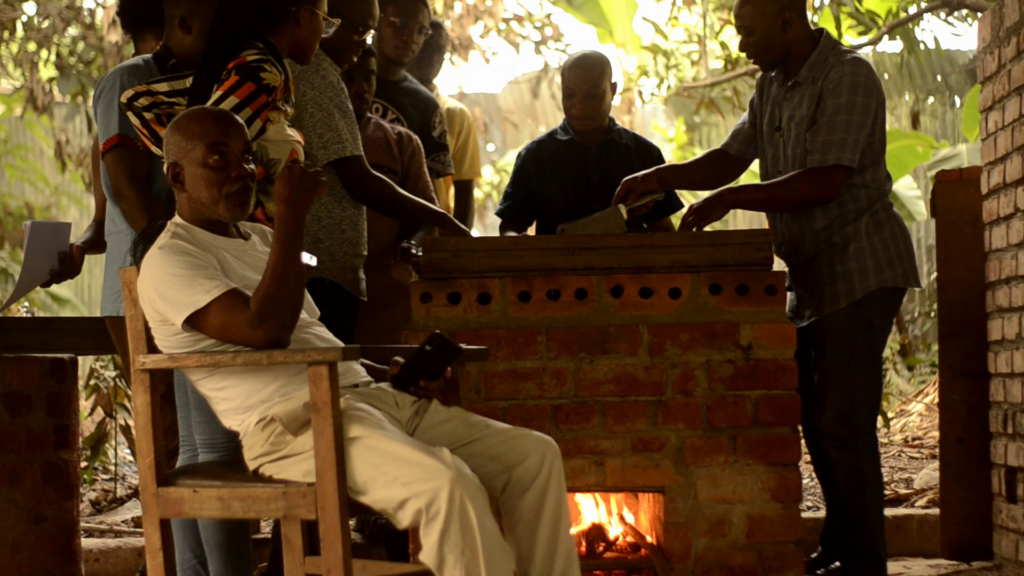
Until women get access to cleaner cooking devices, experts advise them to protect themselves by avoiding smoke as much as possible, wearing nose masks and investing in clean alternatives like LPG gas when they can.
This story was a collaboration with New Narratives. Funding was provided by the Clean Air Fund. The funder had no say in the story’s content.
Latest Stories
-
Lamens flouted some food safety laws in re-bagging rice – Former FDA Boss Alhaji Hudu Mogtari
18 mins -
Afcon exit: Our issue is administrative failure and mismanagement, not lack of talent – Saddick Adams
37 mins -
WAPCo to commence major pipeline maintenance and inspection from November 25
43 mins -
Power crisis: Amandi is off due to maintenance, not debt – ECG Boss
1 hour -
Votes cast for late Akua Donkor to be declared invalid – Electoral Commission
1 hour -
You can’t keep “incompetent” Otto Addo for the long term – Countryman Songo
2 hours -
Joy FM holds 2024 Prayer Summit for Peace
2 hours -
Lady sues Police and AG over assault in custody
3 hours -
Ghana’s railway sector has been revived under my leadership – Akufo-Addo
3 hours -
Next government must enforce C190 – Women Economic Dialogue Forum
3 hours -
NCCE engages party youth activists at Nandom on peaceful election
3 hours -
SSNIT engages stakeholders on its operations
3 hours -
Defilement: 19-year-old farmer jailed ten years, with hard labour
4 hours -
Bawumia to inaugurate new headquarters of Lands Commission on November 25
4 hours -
Sylvester Tetteh denies demolishing GBC staff bungalow
4 hours

